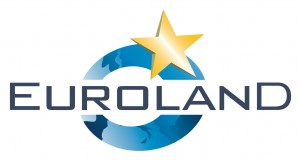{“Enlargement and the constitution are two sides of the same coin”} (G. Schröder)
The year 2004 announces itself as the year of Europe par excellence. It will see EU enlargement (in May), elections to the European Parliament (in June), a new Commission (in September) and possibly a European Constitution (in December?). Yet instead of EU-phoria about the upcoming changes, there is talk of crisis, following the failure of the EU Summit in Brussels on 12-13 December 2003 to agree on a European Constitution. To some, Brussels constituted a clear warning of what an unreformed EU-25 would look like – squabbles, paralysis and indecision. Opponents to enlargement would no doubt lay the blame of the Summit’s failure at the door of the ten new member countries, and in particular Poland. Yet is this criticism justified?
There is little doubt that the new members will have an important impact on the functioning of the EU, which is why it was decided at the Laeken summit in 2001 to set up a Convention on the future of Europe whose task it was, inter alia, to simplify existing EU treaties and to streamline EU mechanisms. One implicit goal of the Convention was to clear up the leftovers of the controversial Nice treaty of 2000 and to prepare a new Intergovernmental Conference (IGC) by the end of 2003 in an effort to better prepare the Union for Eastern Enlargement.
The draft Constitution presented by the Convention at the Thessaloniki Summit on 18 June 2003 made a number of proposals which included a simplified and more balanced voting mechanism in the Council of Ministers. This would have facilitated the adoption of decisions at EU level and could have helped to make the functioning of the Union more transparent. Yet adopting the new voting mechanism would have meant jettisoning the complex provisions adopted at Nice, which put France level with Germany and gave both Spain and Poland nearly equal weight. Yet this the Summit failed to achieve. Spain and Poland were visibly reluctant to give up their newly acquired influence. Yet it would be wrong to blame Poland and Spain alone for the failure at Brussels.
The collapse of the Summit was as much the result of Polish and Spanish stubbornness, the internal weakness of the Polish government and its lack of negotiation skills at EU level, Prime Minister Berlusconi’s mismanagement of the Summit as it was eventually also the French government’s preferred outcome, intent to punish Poland after a series of policy differences between Warsaw and Paris, not least about Iraq and the Constitution, near certain in the knowledge that Poland would be blamed for the collapse of the Summit.
The outcome of Brussels also showed that there is a missing readiness of ‘old Europe’ to adapt to the new realities of a bigger Union. Current net recipients of EU cash in particular want to avoid losing the manna from Brussels. This attitude and domestic political pressure have ensured that national egos are once more back on the line. Whereas the Convention was a near exemplary exercise of European cooperation, national interests represented at the IGC unravelled much achieved over the past fifteen months and went counter to the principle of building Europe by ceding sovereignty to Brussels.
Yet the somewhat atavistic attachment to notions of national sovereignty observed at Brussels is not expected to go away soon given that many of the new members are
even more attached to their (only recently re-acquired) national sovereignty. This could mean that the dream of European federalists of a closer (political) Union looks now more difficult than ever to achieve in a Union which continues growing. Simultaneously, although the EU clearly needs reform of both its structures and its budget, many new members will prefer not to carry out major changes for the time being. This is as much driven by their desire to benefit from existing EU largesse as by their need of still having to comply with current EU acquis.
This development will constitute a particular disappointment to the founding members of the Union who are dreaming of ‘ever closer Union’ and who are gradually realising that Europe as a whole will probably no longer get closer and that ‘widening’ will most likely eventually triumph over ‘deepening’. This will mean that the traditional EU notion of integration will soon be reaching its limits. A bigger EU will inevitably be less homogenous and more fragmented, with sporadic, temporary alliances forming. This could put paid to such notions such as a common foreign policy. Yet European integration will not necessarily stop here since a strong Europe is the only way for many of the small EU members (especially from Central Europe) to get their voice heard internationally, which might convince them to become more European and sacrifice more of their national sovereignty for the greater European good.
The one thing that can be said with some certainty about a bigger EU is that whatever fault lines will be emerging, they are unlikely to run between ‘old’ and ‘new’ Europe. It is rather a debate of ‘big vs. small’, opened at Nice and which is likely to dominate intra-EU relations over the coming years. This new tension between big and small members is particularly difficult to defuse given that their positions on key issues are diametrically opposed and don’t allow easy compromise without major concessions.
In this context, the threat of a core Europe or a German-French Union as mentioned by President Chirac would be less than helpful in advancing Europe. Although a Europe of different speeds might eventually emerge from the current Union, with a number of the new members moving towards closer cooperation with the EU’s original founding members, the legal (and political) basis of a ‘hardcore Europe’ is less than clear at present and could durably poison the political atmosphere inside the EU if pursued further. Recent French and German bulldozing over the Stability Pact did certainly not help to convince the rest of the EU that the current system is balanced and that the intentions of the big members are driven primarily by European considerations.
Finally, the question of future EU spending is one which should be uppermost on everybody’s mind ahead of the discussions about the budgetary cycle 2007-2013 and would present a unique chance of putting an end to the ‘developed world’s biggest economic absurdity’ (The Economist), the Common Agricultural Policy (CAP), of which France is currently the biggest net beneficiary. Yet hopes to achieve major reform of the budget look slim, given traditional French resistance to reforming the CAP and Spain being the biggest recipient of structural funds (regional aid), soon to be supplanted by Poland. Given that the EU budget has to be adopted by unanimity, there lies no doubt a period of acrimonious debates ahead, to which the recent letter by the EU’s net contributors was only a starting shot. Without comprehension that individual concessions will contribute to the greater European good, the Union could face some very troubled times indeed. EU member states should recognise that the Union provides a net benefit for all for which it is worth sacrificing some national sovereignty. Given that there is still a chance that an agreement can be reached under the Irish presidency in the first half of 2004, one option could be to agree on a Constitution which would extend the voting mechanism of Nice for a few years beyond
its foreseen end in 2009, thus allowing member states to see how voting will fare in an enlarged EU. It is clear that Enlargement will not make the functioning of the Union easier, but it will no doubt in the long run make our continent safer and more prosperous.


 LEAP2040 Toutes les informations et archives Europe2040
LEAP2040 Toutes les informations et archives Europe2040


